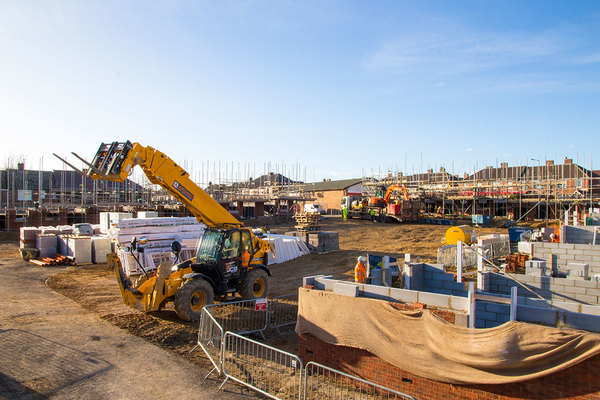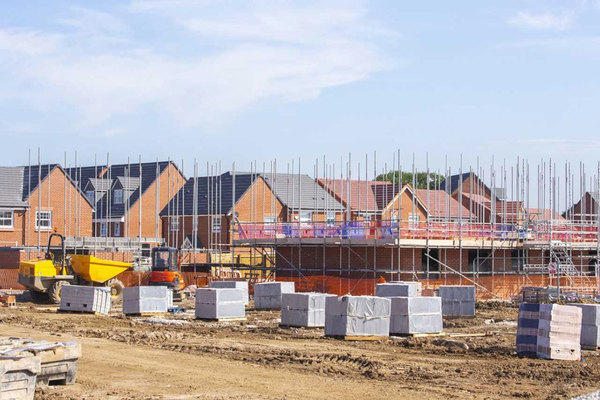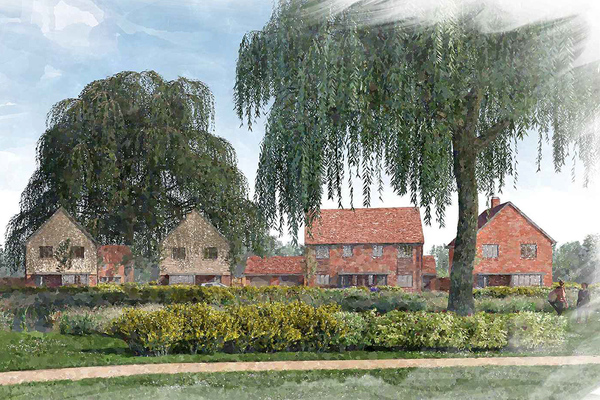Persimmon review finds fire safety issues and poor workmanship across housing stock
The UK’s second-largest house builder Persimmon has been told it must consider its “purpose and ambition” as a review of its processes reveals issues with fire prevention measures and poor workmanship on its properties.
A report published today marks the conclusion of a review launched in April by Persimmon’s board following controversies over quality and executive pay, as well as plans to adopt the principles of the Hackitt Review.
The Persimmon review was chaired by Stephanie Barwise, QC of commercial law firm Atkin Chambers, who is also currently representing a group of survivors and the bereaved at the public inquiry into the Grenfell Tower disaster.
Among other things, it identified problems with cavity barriers – pieces of fire-stopping material that are fitted within building cavities in order to prevent the spread of fire.
It concluded that Persimmon has a “systemic nationwide problem” with missing and/or incorrectly installed cavity barriers in its timber frame properties. These issues were discovered in 2018.
Persimmon had already put steps in place to prevent this reoccurring, including producing a specific checklist and guidance on installation for staff.
But the review found that on one site, workers employed to remedy any issues with cavity barriers had, on two separate visits to one property, claimed that all missing cavity barriers had been retrofitted when in fact they had not.
“The cavity barrier problem is a manifestation of a lack of supervision and inspection of the way in which building work is carried out both by Persimmon’s own labour and Persimmon’s subcontractors,” the report said.
It recommended that Persimmon appoints a reputable fire engineer to make sure it can correctly identify the extent and nature of the problem in existing properties, and take the necessary steps to rectify any issues.
Looking at the company’s corporate culture, the review said that if its board wants it to be “a builder of quality homes, meeting all relevant build and safety standards”, then it should reconsider Persimmon’s “purpose and ambition”.
It said: “Persimmon has traditionally been more a land assembler and house-seller rather than a house builder… Assuming [its ambition] is to be a builder of quality homes, it is only then that the changes necessary to achieve this ambition can be properly formulated in a coherent, overarching strategy. The achievement of this ambition will also require changes in the culture of the business.”
Persimmon does not currently have a group build policy, which increases the risk of build defects, the report said.
It recommended that the company put in place an overarching set of principles for its building quality.
The report concluded: “Persimmon’s culture must change: many of Persimmon’s employees, customers and stakeholders wish Persimmon to change, and in a changing regulatory environment, Persimmon cannot afford the stigma of a corporate culture which results in poor workmanship and a potentially unsafe product.”
Roger Devlin, chair of Persimmon, said: “The review found that Persimmon had focused on policies around inspections immediately before and after the sale of a home, rather than those governing build quality inspections.
“In my view, this is one of its central findings and I am encouraged that the company is already embracing the review’s recommendations in this area through significant operational investment and procedural change.”
He added: “Persimmon has already taken positive steps in other important areas, such as being the first house builder to introduce a customer retention scheme, investing over £140m to date in additional work in progress and an additional £15m in annual quality and service costs.”
Ms Barwise said that Persimmon’s board “deserve[s] significant credit” for commissioning the review.
“It demonstrates their willingness to confront some difficult truths as they focus the business on rapid change and improvement,” she said.











